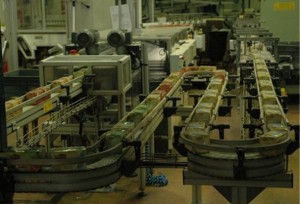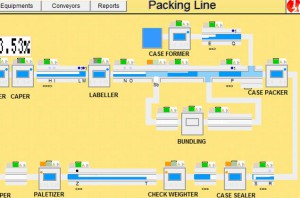Simulation of industrial systems has filled our professional lives for decades and has also changed the way we see the world – with a vision both global and transversal, it can detect the slightest sand grain that will have an impact on these complex dynamic flows.
We have been exchanging about industrial simulation with manufacturers and investments analysts, with researchers and teachers, with managers and engineers, with militaries and municipal officials.
Helped by this long and wide experience, we chose to share in these pages some basic principles as well as the newest ideas or techniques on this topic of industrial simulation.
Get to know more about us and visit our website.

Simulating industrial systems, what does that mean? We could use a scientific, even medical, metaphor and say it means studying a system the way a physiologist would do (as opposed to an anatomist, who would focus on structure and organs) – a comprehensive study of functions and processes, of their role and behavior, of their interactions at different organizational levels, and at all levels of complexity.
First thing is to create a model corresponding to the system we wish to study; it implies finding a functional representation as close to reality as possible, and which enables you to analyze certain subtleties, such as parameters that change according to the hour of the day, to tiredness, to an emergency or to random phenomena… This computer replica was done with specific software, which can be either general-purpose or dedicated to a field. This is quite a tricky step, because the quality and the adequacy of the results provided by the simulations running this model depend on the quality and reliability of the model.

Simulating with this validated model means launching various scenarios with simulated time that differ by their starting assumptions or by the events that will occur during the case. The model is a tool for testing purposes, it can be used for virtual experimentation, imitation of the real world, what is called the "what if?" approach. Simulation is meant to take into account new ideas, unlimited variations or far-fetched assumptions, to test data sets or elaborated designs of experiment – there is not much risk taken, we only spend some CPU time and human intelligence…
